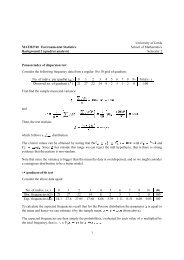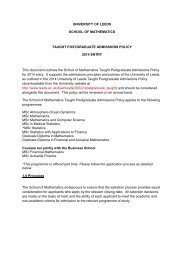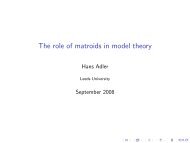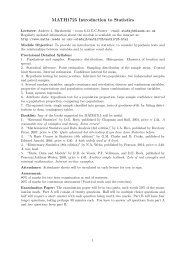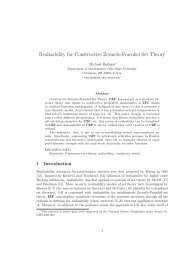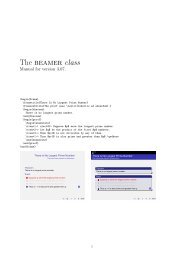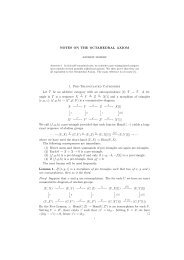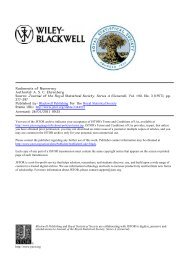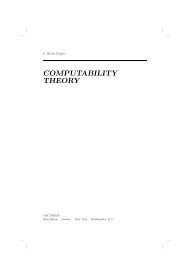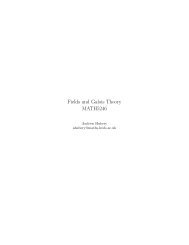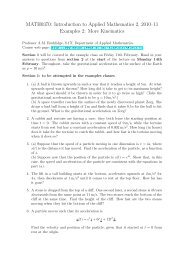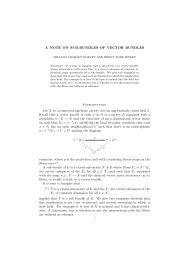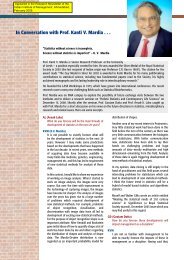Lectures on Representations of Quivers by William Crawley-Boevey ...
Lectures on Representations of Quivers by William Crawley-Boevey ...
Lectures on Representations of Quivers by William Crawley-Boevey ...
You also want an ePaper? Increase the reach of your titles
YUMPU automatically turns print PDFs into web optimized ePapers that Google loves.
§8. Euclidean case. Regular modules<br />
In this secti<strong>on</strong> we study the category <strong>of</strong> regular modules. We show that its<br />
behaviour is completely determined <strong>by</strong> certain ’regular simple’ modules.<br />
PROPERTIES OF REGULAR MODULES.<br />
(1) If ¤ :X ¡ Y with X,Y regular, then Im(¤ ) is regular.<br />
PROOF. Im(¤ ) Y, so it has no preinjective summand. Also X ¢ Im(¤ ), so it<br />
has no preprojective summand.<br />
(2) In the situati<strong>on</strong> above Ker(¤ ) and Coker(¤ ) are also regular.<br />
PROOF. 0 ¡ Ker(¤ ) ¡ X ¡ Im(¤ ) ¡ 0 is exact, so Ker(¤ ) has defect zero. Now<br />
) X, so Ker(¤ )=preprojectives¥ regulars. If there were any<br />
Ker(¤<br />
preprojective summand, then the defect would have to be negative. Similarly<br />
for Coker(¤ ).<br />
(3) If 0 ¡ X ¡ Y ¡ Z ¡ 0 is exact and X,Z are regular, then so is Y.<br />
PROOF. The l<strong>on</strong>g exact sequence shows Hom(Z,Preproj) = 0 = Hom(Preinj,Z).<br />
(4) The regular modules form an extensi<strong>on</strong>-closed abelian subcategory <strong>of</strong> the<br />
category <strong>of</strong> all modules.<br />
(5) and<br />
DEFINITION.<br />
-<br />
are inverse equivalences <strong>on</strong> this category.<br />
A module X is regular simple if it is regular, and has no proper n<strong>on</strong>-zero<br />
regular submodule. Equivalently if defect(X)=0, and defect(Y)



